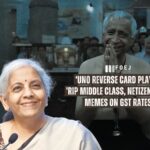On Tuesday, the state government approved the Maharashtra State Backward Class Commission’s recommendation to include the Kunjada caste of the Muslim community in the Other Backward Classes (OBC) list.
The state government has accepted the 56th report of the Maharashtra State Backward Class Commission, which includes the recommendation to list the Kunjada caste within the Muslim community as Other Backward Classes (OBC).
The Kunjada caste will join the Mali, Bagwan, and Rain castes within the Muslim community in the Other Backward Classes (OBC) category.The commission’s report also addresses five additional cases: adding Kevat-Tagwali, Kevat-Tagwale, Tagwale, Tagwali, and Tagwala to the Nomadic Tribes (B) category; including Chunewala, Chunewale, and Chunari in the OBC list; designating the Hadgar caste as part of the Special Backward Classes; recognizing Lad Vanjari as a sub-caste of Vanjari in Nomadic Tribes (D); and removing the duplicate listing of Bhoyar in the OBC category.
This decision follows allegations from the ruling BJP during the Lok Sabha election campaign, which claimed that the Congress was planning to add Muslims to the OBC list.
During an April rally in Sagar district, Madhya Pradesh, Prime Minister Narendra Modi accused the Congress of covertly extending reservations based on religion in Karnataka by categorizing all Muslim castes alongside the OBCs. Modi claimed this move undermines OBC reservation and warned it could harm future generations.
State BJP spokesperson Keshav Upadhyay did not respond to calls. An official from the Other Backward Class welfare department said that merely a government procedure has been followed. “The recommendations made in the commission’s report have been discussed by the state government and accepted. We cannot comment on the political side if any,” the official added.
Political Reaction
Manoj Jarange Patil, a Maratha quota activist, has publicly supported the inclusion of Muslims in the OBC category. He argues that many Muslims historically engaged in agriculture, similar to communities like Mali and Kunbi, which are recognized as OBCs. Patil believes that if occupation is the criterion for inclusion, then Muslims should also be afforded similar recognition and benefits
However, Laxman Hake, an OBC activist, has opposed the inclusion of Muslims in the OBC list. He contends that Islam does not have a caste system, which complicates the application of caste-based reservations. Hake emphasizes that the reservation policy is based on social hierarchies that are not applicable to the Muslim community, which he claims is divided into two groups rather than castes.









